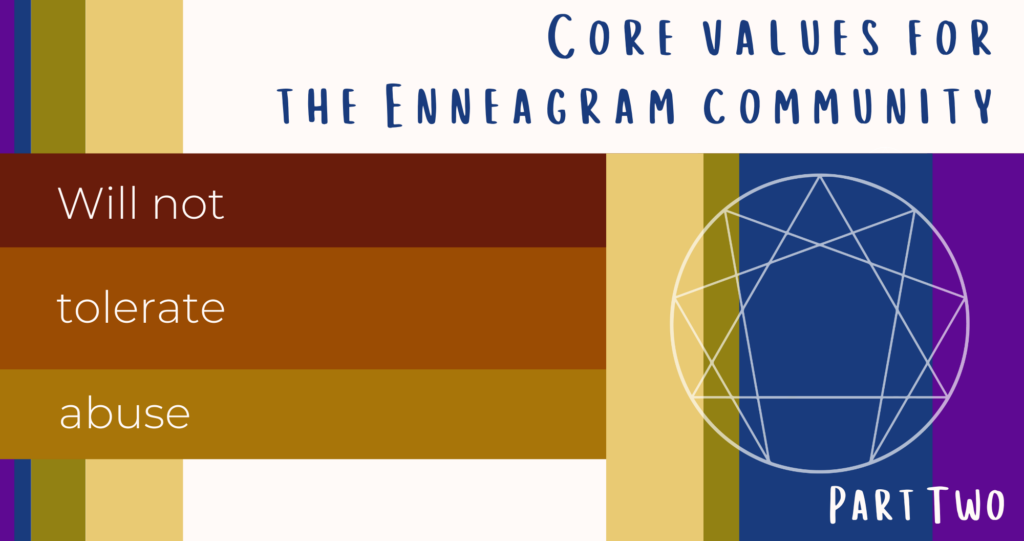In recent years, the International Enneagram Association (IEA) has formulated ethical guidelines for Enneagram teachers. Although most of their guidelines refer to Enneagram teacher-student situations, several of them seem, at least it appears to me, to also apply to how Enneagram teachers interact with one another and how Enneagram schools treat one another as well as their staff and faculty.
This second blog focuses on the IEA ethical standard of abuse: IEA Community Standard: “We will not tolerate abuse in the IEA, including behavior that is manipulative, exploitive, demeaning, harassing, retaliatory or cruel.” What do these words really mean?
Abuse: Treating someone in a way that causes them harm, especially cruelly, regularly and/or repeatedly. This can be physical, emotional, or structural, as in the abuse of power.
Manipulative: Exerting unscrupulous control; functioning, consciously or unconsciously, to control another’s behavior or exert harmful influence over them
Exploitive: Taking advantage of another for one’s own benefit
Demeaning: Causing someone to lose their dignity; doing something that lowers another’s reputation
Harassing: Aggressive pressure or intimidating behavior, often in a persistent way
Retaliatory: Behavior motivated by a desire to punish someone or for revenge
Cruel: Causing pain and suffering to others, often with no concern or, even worse, gaining some satisfaction or pleasure from doing so; also inaction when faced with the suffering of another
All seven of these words are highly negative. Could such behavior exist within the Enneagram community, from Enneagram teacher to Enneagram teacher, from Enneagram schools to faculty and staff? How could this be when the Enneagram is supposed to foster acceptance of self and others, understanding, responsibility for our actions, kindness and respect, and more? Well, unfortunately, the Enneagram community, like other social systems, is not immune to abusive behavior.
Most likely, the person(s) doing the abusing does not perceive themself or themselves in this way. They can engage in cognitive dissonance, a way of compartmentalizing in which two opposing pieces of information, often values or self-perception versus actual behavior, directly contradict each other. What to do with this contradiction?
- Keep them separated (compartmentalized)
- Rationalize the behavior, justifying it in some way
- Blame the other person (“I only did this because you did that!”)
- Project on the other person (my motives and behavior become your motives and behavior, so you are “bad” and I am “good”)
- “Gaslight” the other person, communicating you did not do what you actually did
Unfortunately, all the above ways of interacting with one another actually occur within the Enneagram community, between Enneagram teachers, and between Enneagram schools and Enneagram teachers.
I am not going to share examples, lest I upset those of us who have or are doing such things or some who have not but think, for some reason I am speaking about you. What I am trying to say is that these sorts of “abusive” behaviors harm the current and forward momentum of the Enneagram in its ability to make a difference in the world. Let’s be honest with ourselves, let’s not do this, and let’s allow the IEA to be an honest broker between teachers and/or schools when this occurs.
Ginger Lapid-Bogda PhD, author of nine Enneagram books, is a speaker, consultant, trainer, and coach. She provides certification programs and training tools for business professionals around the world who want to bring the Enneagram into organizations with high-impact business applications. TheEnneagramInBusiness.com | ginger@theenneagraminbusiness.com


Comments are closed.